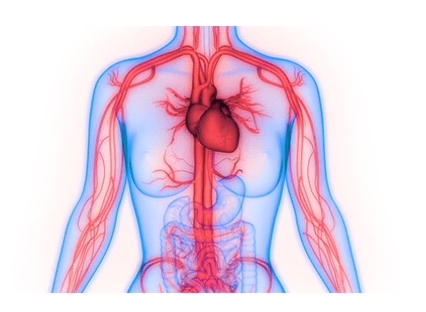
Can my blood detect Peripheral Artery Disease?

You're waiting for the lab to call your name at the doctor's office. It's that time of year again for your annual, regular blood test to ensure your wellness. Nearly 40% of all Americans, including blood and urine screens, skipped regular tests advised by their doctors in 2018. Even while skipping these "optional" tests may not seem like a huge issue, your doctor may not be able to detect some warning signals based on the findings of these labs.
If you're at risk for high cholesterol/blood pressure, diabetes, or vascular disease, you should see your doctor more regularly. Preventing these common health problems is simple, especially if your doctor has the information they need to keep an eye out for future problems.
Have you ever considered what blood tests screen for, even if you're the sort of person who gets blood testing on a regular basis? It's critical to comprehend their critical function, as well as how they may assist individuals avoid life-threatening diseases including PAD, stroke, heart attack, and gangrene.
A regular blood test is usually recommended once a year by doctors, but there are a few additional reasons why you might need one more frequently. If you're on the verge of being at risk for high cholesterol, high blood pressure, diabetes, or other conditions, you should keep track of your stats. Also, if you're having persistent symptoms and your doctor is attempting to figure out what's wrong. Finally, if you're dieting, exercising, or training, you may want to get your blood tested more frequently. The following are some of the most frequent blood tests:
Complete blood count (CBC): The most frequent blood test for determining overall health and nutritional status, as well as screening for possible diseases or health problems.
Lipid panel: This is the third most prevalent test, which assesses cholesterol and triglyceride levels as well as other vascular concerns.
Hemoglobin assays, such as the A1C test, can be used to monitor and detect severe glucose problems, such as diabetes.
A liver panel is used to evaluate the liver's overall function and capacity to filter poisons from the blood.
Blood sugar, carbon dioxide, nitrogen, and creatinine levels, as well as kidney function, are all measured in the basic metabolic panel, which is the second most essential blood test.
Prothrombin time (PT): This test is used to determine how long it takes your blood to clot properly.
Thyroid hormone panel: Assists both the doctor and the patient in determining how the thyroid is working.
Always keep in mind that you are your own health champion. If you're concerned about a recurring symptom, talk to your doctor about getting a blood test. If your doctor thinks it's essential, he or she can request a blood test.
Blood tests are used to diagnose a wide range of diseases and illnesses. Have you ever considered whether they are utilized to detect vascular problems such as peripheral artery disease?
Blood tests can detect possible health concerns that could lead to PAD, but they cannot diagnose vascular diseases on their own. Although there is no particular blood test for peripheral artery disease, cholesterol screenings and high blood sugar testing can help doctors anticipate whether or not you are at risk. If recent blood tests reveal elevated cholesterol, glucose, or blood pressure levels (particularly over a long period of time), your doctor can work with you to evaluate whether PAD is a concern in the future. By comparing prior blood tests to current ones, your doctor can recommend preventative steps to help you stop PAD from developing or worsening. Despite the fact that blood tests can not diagnose peripheral artery disease, they can alert you to possible hazards before they develop.
We are just a call or click away. To learn more, book an appointment online or over the phone with PeachState Advanced Cardiac & Endovascular. We have several locations in Georgia: Newnan, Atlanta, & Griffin.
You Might Also Enjoy...


Should I be worried about my numb feet?

Can leg cramps be a sign of something serious?

Meet Dr. Odiete - PACE Cardiovascular Specilaist

Keeping your Vascular System Healthy


